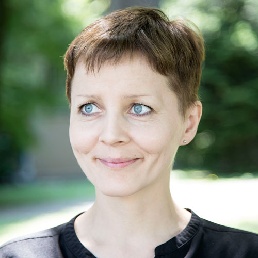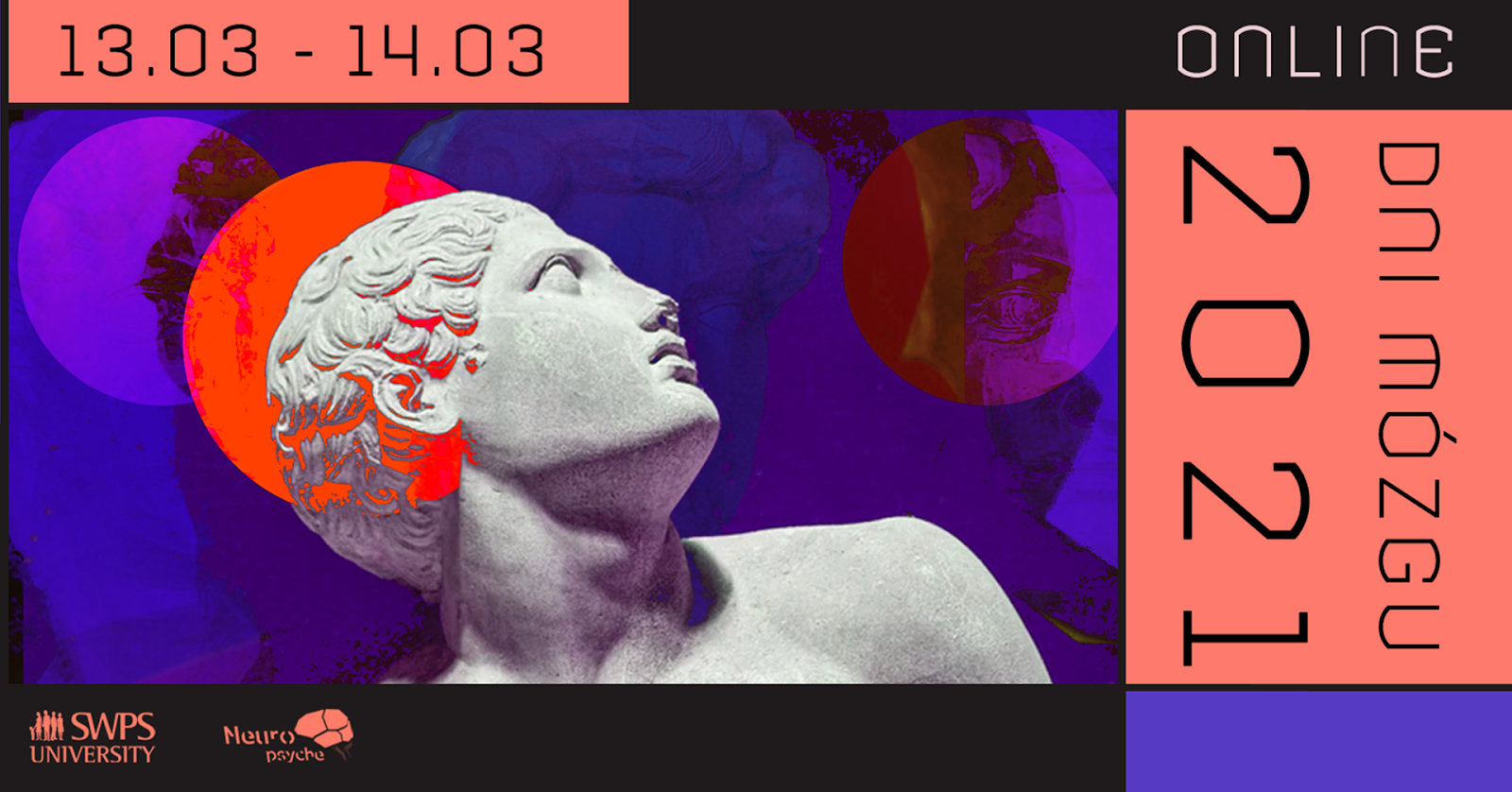Continuous improvements in technology allow us to build intelligent machines and various implants and prosthesis. On the other hand, constantly improving capabilities for brain exploration (brain atlases) help us understand its complexity. The consolidation of knowledge from different disciplines, such as brain biology and robotics, inevitably leads us towards the integration of humans and technology. Should we be afraid of cyborgization or should we be hopeful about this process?
During this event, we will not answer this question unequivocally, but the discussion will certainly help us understand human brain, machines, and the mutual human-machine relationship. This is an opportunity to meet our acclaimed guests, Professor Kevin Warwick, known as the first cyborg in the world, and Professor Wiesław L. Nowiński, known for bridging the gap between science, medicine and art.
The first HumanTech Meeting this year will be a part of the 2021 Brain Awareness Day (Dzień Mózgu), organized by SWPS University.
The meeting will be hosted by Dr. Konrad Maj.
Due to the pandemic, the meeting will take a form of an online webinar. Join us live >>
Lanuages of the event: Polish and English (with translation to both languages).
March 14 (Sunday)
16:30-19:30 CET (UTC+1)
online
HumanTech Meetings
We live in an era of innovation, technological progress and digitalization. This current innovation drive may lead to unpredictable psychological and social outcomes. Therefore, it is crucial to establish collaborations between engineers, programmers, IT specialists and social scientists during initial phases of any new projects related to development of new technologies or services. Such collaborations may help to avoid mistakes and can support better development of new ideas.
The project is planned as a series of meetings, gathering academics and professionals from the technology sector from Poland and other countries. Each meeting will include two lectures, one delivered by a speaker from Poland and one presented by a guest from another country. The lectures will be followed by panel discussions, where panelists will represent different approaches to innovation and technology.
HumanTech Meetings is a project of SWPS University's Center for Innovation. More information »
We are very happy that our meetings attract not only a growing audience, but also world-renowned scientists and scholars. This forum is an attempt at understanding the future through the knowledge shared by acclaimed researchers. It also serves as a preparation for the reality, which will become our present sooner than we might expect. One element of this approaching reality will be cyborgization.
Konrad Maj, Ph.D., Head of the HumanTech Center
Lecture 1: Merging Humans and Machines - Join us live >>
Our future will be as cyborgs – part human, part technology. Kevin’s own experiments will be used to explain how implant and electrode technology can be employed to create cyborgs: biological brains for robots, to enable human enhancement and to diminish the effects of neural illnesses. In all cases the end result is to increase the abilities of the recipients. An indication is given of a number of areas in which such technology has already had a profound effect, a key element being the need for an interface linking a biological brain directly with computer technology.
Kevin Warwick – is Emeritus Professor at Reading and Coventry Universities. His research areas are artificial intelligence, biomedical systems, robotics and cyborgs. Kevin is a Chartered Engineer and a Fellow of the IET who has published over 600 research papers. His experiments into implant technology led to him being the cover story on the US magazine, ‘Wired’. He achieved the world’s first direct electronic communication between two human nervous systems, the basis for thought communication. He has been awarded higher doctorates (DSc) by Imperial College and the Czech Academy of Sciences. He received the IET Mountbatten Medal, the Ellison-Cliffe Medal from the Royal Society of Medicine and presented the Royal Institution Christmas Lectures. In 2014 he was elected to membership of the European Academy of Sciences and Arts and in 2018 he was elected to the International Academy for Systems and Cybernetic Sciences. Kevin has been the recipient of ten Honorary Doctorates.
Lecture 2: Atlas-enabled neuro-applications: I did it my way - Join us live >>
The 21st century is the century of the brain and mind, and in order to gather, present, use, and discover knowledge about the brain, the brain atlases are employed. A recent tremendous brain atlas development in terms of content, functionality and applications has also been propelled by big brain projects.
I have created diverse human brain atlases, including research prototypes and 35 products licensed to 67 companies and institutions, distributed to about 100 countries. These are anatomic, connectomic, vascular, functional and population-based atlases in health and disease.
Prof. Wiesław Nowiński will share his experience in brain atlas creation and development of atlas-enabled applications for neuroeducation (2D and 3D atlases, family of Brain in 1492/1969/2953 Pieces atlases, NOWinBRAIN brain image repository), brain research, neurology (3D Atlas of Neurologic Disorders, atlas-assisted decision making in stroke, and probabilistic stroke atlas for prediction), psychology, psychiatry, neuroradiology, and neurosurgery (stereotactic and functional neurosurgery for deep brain stimulation, helical stereotaxy, probabilistic functional atlas, do-it-yourself-neurosurgery, and operating room of the future).
Wiesław Nowiński, D.Sc., Ph.D. – is a scientist, innovator, entrepreneur, pioneer and visionary; science-medicine-art "bridge builder"; creator of "world’s most gorgeous" human brain atlases. Affiliated with top universities, No 2 in MED and No 2, 6, 9 in ENG (Shanghai ranking). He has 575 scientific publications (h-index 47, i10-index 176 (Google Scholar); within world’s top 2% scientists (Stanford list); 71 patents granted (23 US, 11 EP) and 68 patent applications filed (19 US, 21 EP). With his team, he created 35 brain atlas products licensed to 67 companies and institutions, distributed to about 100 countries. He received 45 awards, 30 from leading medical societies (radiological Oscar) and 3 for innovation (2014 European Inventor of the Year (within the top three)). He was named The Outstanding Pole in the world in 2012 and was commemorated on a stamp issued by the Polish Post in 2018 to honor Polish inventors of the century (one of only two living inventors honored this way).

Karolina Zawieska – is a Marie Curie-Skłodowska Research Fellow at Aarhus University in Denmark. With her background in sociology, her research involves qualitative studies in roboethics and Human-Robot Interaction. In particular, she has been investigating the understanding of ethics in robotics and the ways to develop a culture of responsible robotics. Prior to joining Aarhus University, she has received her doctoral degree from the University College Dublin (UCD) in Ireland, and conducted postdoctoral research at De Montfort University, UK. Also, for a number of years she has worked for the Łukasiewicz Research Network – Industrial Research Institute for Automation and Measurement PIAP in Warsaw. In addition to conducting her research, she has been involved as an expert with the United Nations and its initiative dedicated to Lethal Autonomous Weapon Systems (LAWS) as well as with the European Commission as a member of the expert group on Ethics of Connected and Automated Vehicles (CAVs).
Piotr Sajdak – after a tragic event in which he lost his right arm, Piotr has managed to overcome the loss of his limb, and became stronger and better than ever before. He particpated in the Polish edition of the MasterChef cooking competition, became a personal trainer, and co-founded Glaze Prosthetics, a startup company whose goal is to bring 3D printing into the orthotics and prostethics industry. Recently, he has been featured on the cover of the Polish edition of MensHealth as the first person with limb differences in the history of the magazine.
Panel Moderator
Maksymilian Bielecki, Ph.D. – is an Assistant Professor at the Department of Biological and Behavioral Psychology at SWPS University. He specializes in neurocognitive science, psychophysiology, psychometrics, and psychological research methods. As a statistician and psychologist he collaborates with the leading research institutions, such as the Medical University of Warsaw (WUM) and the Nencki Institute of Experimental Biology. His professional interests focus on memory, cognition, and eye-tracking. As a consultant specializing in behavioral economics, statistics, and psychometrics, he collaborates with numerous companies from the Human Resources, Fast-Moving Consumer Goods (FMCG), Finance, Insurance, and Telecommunication sectors. He is a co-founder of the HumanTech Center for Social and Technological Innovations at SWPS University. Full bio »
Meeting Host
Konrad Maj, Ph.D. – Social psychologist, Head of the HumanTech Meetings project, initiator and Head of the HumanTech Center for Social and Technological Innovations. In his research and teaching he focuses on social influence, media psychology and innovations. Recently, he has been working on a Human-Robot-Interaction (HRI) project. From 2013 to 2016 he held the post of Rector’s Representative for Research, focusing on practical application of research results and social innovations. He visited numerous innovation centers, including the Institute for Social Innovation (ISI) at Carnegie Mellon University, Pittsburgh, USA, the ID+ Research Institute for Design, Media and Culture at the University of Averio, Portugal, and Design Factory at Aalto University, in Finland. Full bio »
Organizer
HumanTech Center for Social and Technological Innovation >>
Main Partner

Partners

Media Support

Sponsors

The Meeting is a part of the 2021 Brain Awarness Day (Dzień Mózgu)

Date and Location
Sunday, March 14, 2021, online
Contact
Coordinator: Ewa Łuczak
e-mail: This email address is being protected from spambots. You need JavaScript enabled to view it.
The HumanTech Meetings project is funded by the Ministry of Science and Higher Education, under the “Promotion of Science” funding scheme - contract no. 792/P-DUN/2019.